Have you seen the new addition to the gibbon family?
At the end of October, we welcomed baby Maavi, the third offspring of Maya (female, 12) and Samson (male, 21), who were matched in 2017 on a recommendation from the Association of Zoos and Aquariums Species Survival Plan® Program.
The Zoo’s gibbon family also includes older siblings Salju (female, 4), born in February 2019, and Merrick (male, 2), born in March 2021.
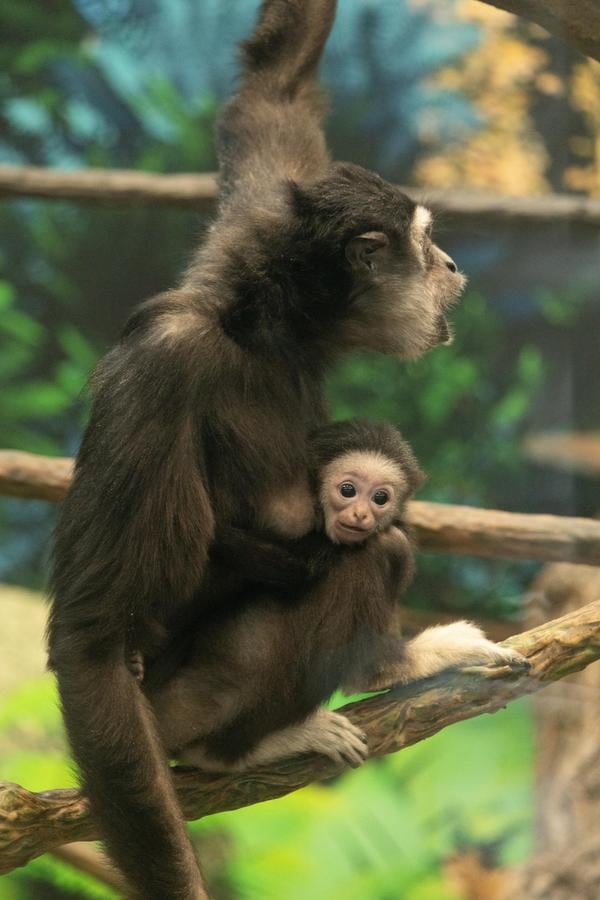
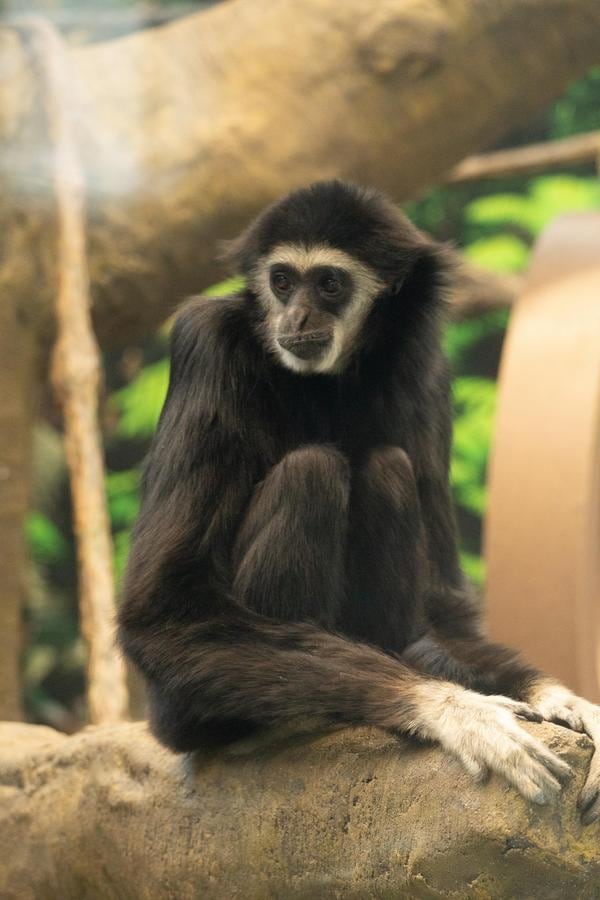
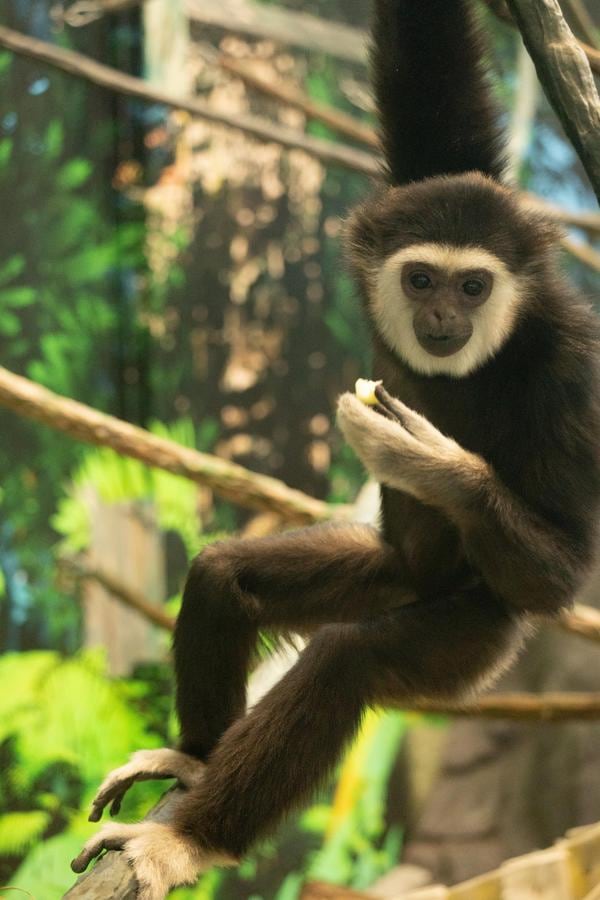
We caught up with Fran, an Animal Care Professional who works with the gibbons, to give us an update on the gibbon family as they adjust to life with baby Maavi!
How is the gibbon family doing?
Fran: The family is doing great together. Maavi is developing perfectly, and the family is all interacting well together. There are grooming sessions and play sessions and Merrick and Salju are like a barrel of monkeys and are great older siblings to little Maavi.
What has it been like to watch the gibbons go from gibbon couple to one baby, to two, and now three?
It has been quite the evolution, and it just makes me love them more and more with each new addition. It's great watching how the family develops into each stage of growth.
Can you tell us about the sibling dynamic?
So, the sibling dynamic, I have to say, is very similar to what we see in many human families. Salju being the oldest is a little bit more respectful and will join Maya in some grooming sessions and stuff like that and will reach out and touch Maavi and play with her a little bit. But then we have Merrick, who is a bit more of the middle child and is still in that rambunctious toddler stage. Maya keeps a little bit closer of an eye when he's interacting with Maavi.
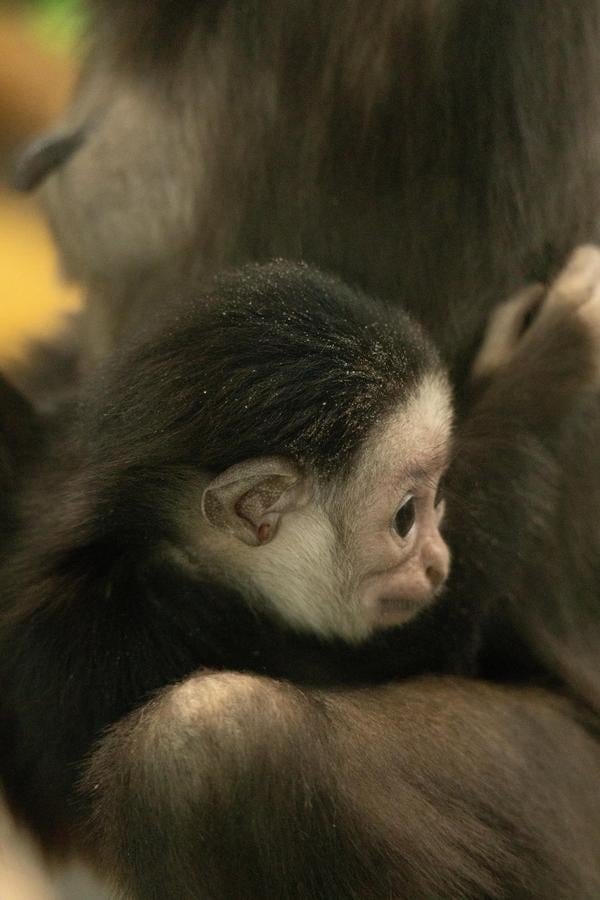
.jpg)
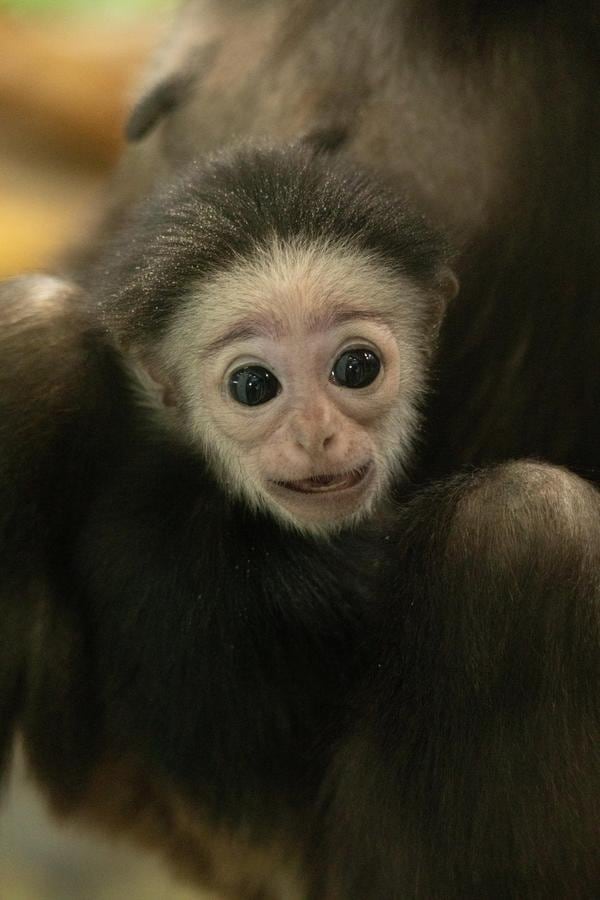
What are some of the development phases that you are looking for with the baby at this point?
So at this stage, what we want to see is her starting to reach out and start to acknowledge the world. You can see it in her eyes and her face as she's reaching out to start interacting with some of the foods that we put out. She's not eating solid foods or anything like that yet, but she's starting to reach out and grab things, to kind of lay off Maya a little bit and bounce her legs. It is the same thing that you see even in human babies when they start using those little jolly jumpers and bouncers.
We take a hands-off approach with the gibbons in terms of animal care. Can you explain what that is and why we do that?
We take a hands-off approach because Mom is doing exactly what she is supposed to do. She is raising her kids, so there's no need for us to encroach on her at this point. Maavi’s immune system is developing naturally right now, very similar to how a human baby would. When she is old enough, we will get hands-on and give her vaccines when it's time. Right now, we want mom and baby to have this important time together.
You can visit our gibbon family in the Animals of Asia section of the Zoo!
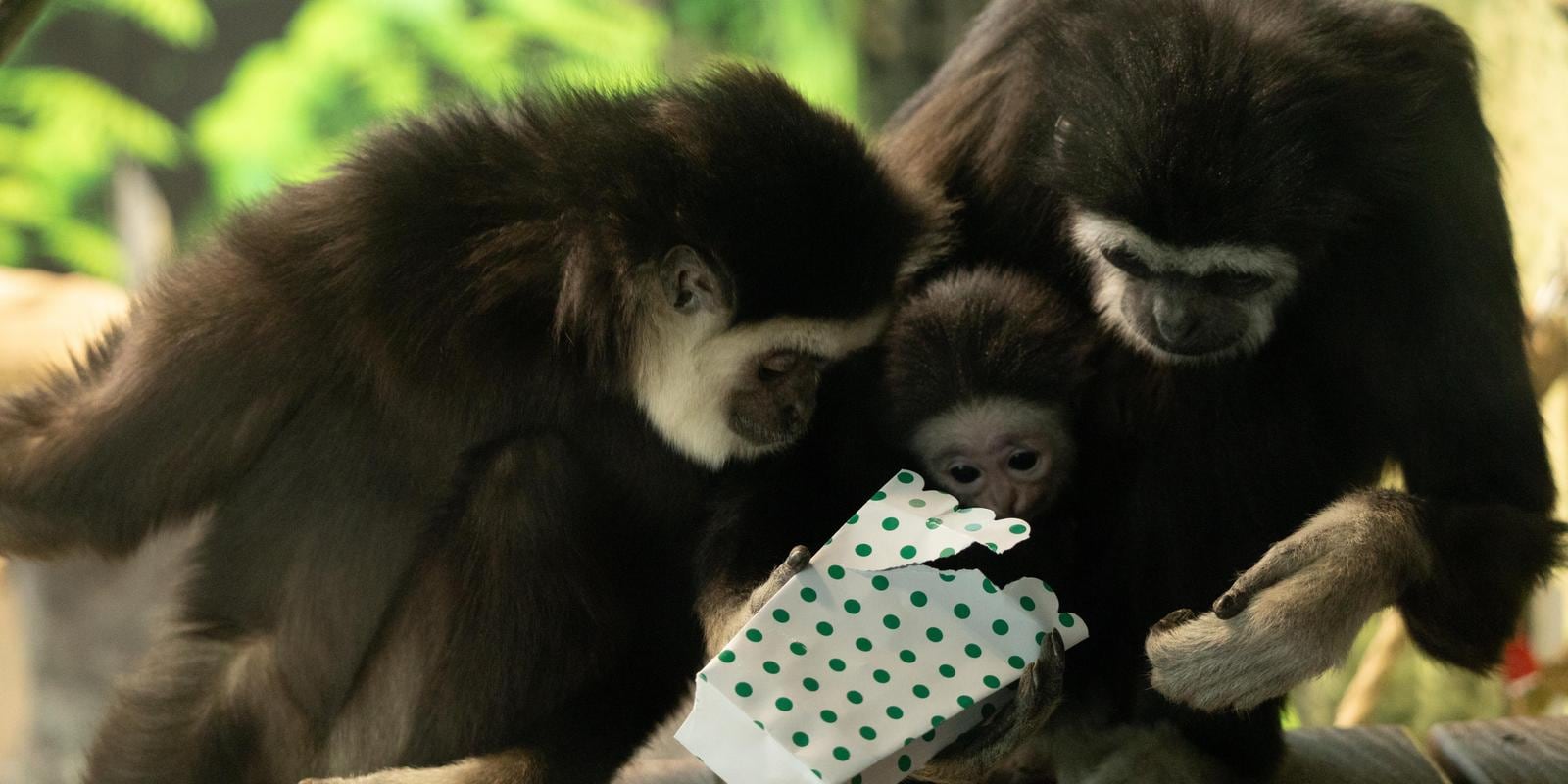
Learn more about these fascinating creatures and how you can help this species survive in the wild.
Animal: White-handed Gibbon
Taxonomic name: Hylobates lar
Conservation Status: Endangered (Global - IUCN Red List)
Wild Range: Forest of Southern Myanmar, Thailand, Cambodia, Malaya, and Sumatra
Diet: Fruits, leaves, insects, young birds, and eggs.
Longevity in the wild: 25-30 years.
Size: 43 cm to 63.5 cm
Weight: 4 to 13 kilograms
Fun fact: White-handed Gibbons swing from arm to arm through trees, a type of movement unique to primates called "brachiation". Up to 80% of locomotion that Gibbons make is brachiation!
Conservation Story: Habitat loss is one of the leading causes of this species' decline. Unsustainable palm oil production cuts roads and clear-cuts for plantations through their habitat. The good news is that you can make a difference in this industry! Learn what companies use sustainable palm oil in food, cleaning products, and more! Visit rspo.org to learn more and use your purchasing power to help gibbons in the wild!





